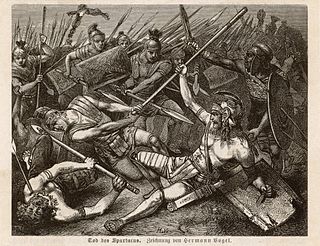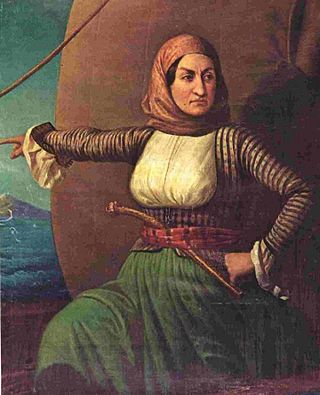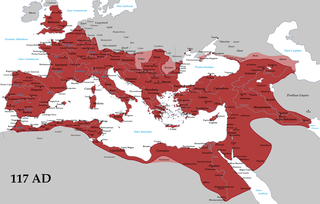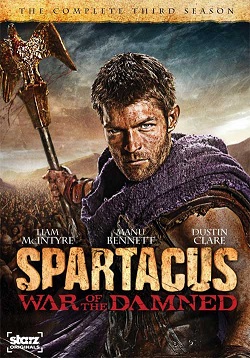"Revolting women" redirects here. For the play, see Revolting Women.
This is a list of women who led a revolt or rebellion. A revolt is an organized attempt to overthrow an existing body of state authority through a rebellion, or uprising.
| Part of a series on |
| Women in society |
|---|
 |
This is a list of women who led a revolt or rebellion. A revolt is an organized attempt to overthrow an existing body of state authority through a rebellion, or uprising.



Boudica or Boudicca was a queen of the ancient British Iceni tribe, who led a failed uprising against the conquering forces of the Roman Empire in AD 60 or 61. She is considered a British national heroine and a symbol of the struggle for justice and independence.

The 40s decade ran from January 1, AD 40, to December 31, AD 49.

Septimia Zenobia was a third-century queen of the Palmyrene Empire in Syria. Many legends surround her ancestry; she was probably not a commoner and she married the ruler of the city, Odaenathus. Her husband became king in 260, elevating Palmyra to supreme power in the Near East by defeating the Sasanian Empire of Persia and stabilizing the Roman East. After Odaenathus' assassination, Zenobia became the regent of her son Vaballathus and held de facto power throughout his reign.
This article concerns the period 169 BC – 160 BC.

A slave rebellion is an armed uprising by slaves, as a way of fighting for their freedom. Rebellions of slaves have occurred in nearly all societies that practice slavery or have practiced slavery in the past. A desire for freedom and the dream of successful rebellion is often the greatest object of song, art, and culture amongst the enslaved population. These events, however, are often violently opposed and suppressed by slaveholders.

Laskarina Pinotsi, commonly known as Bouboulina, was a Greek naval commander, heroine of the Greek War of Independence in 1821, and considered perhaps the first woman to attain the rank of admiral.

The Kitos War was one of the major Jewish–Roman wars (66–136). The rebellions erupted in 115 when most of the Roman armies were fighting Trajan's Parthian War on the eastern border of the Roman Empire. Major uprisings by Jews in Cyrenaica, Cyprus and Egypt spiralled out of control, resulting in a widespread slaughter of the remaining Roman garrisons and Roman citizens by Jewish rebels.

The Age of Revolution is a period from the late-18th to the mid-19th centuries during which a number of significant revolutionary movements occurred in most of Europe and the Americas. The period is noted for the change from absolutist monarchies to representative governments with a written constitution, and the creation of nation states.

The Palmyrene Empire was a short-lived breakaway state from the Roman Empire resulting from the Crisis of the Third Century. Named after its capital city, Palmyra, it encompassed the Roman provinces of Syria Palaestina, Arabia Petraea, and Egypt, as well as large parts of Asia Minor.

The role of women in ancient warfare differed from culture to culture. There have been various historical accounts of females participating in battle.

The following is a list of women in war and their exploits from about 1800 up to about 1899.
Bouboulina is a 1959 Greek drama film directed and written by Kostas Andritsos and starring Irene Papas as Laskarina Bouboulina, Koula Agagiotou, Andreas Barkoulis and Dionysis Papagiannopoulos. The film features the heroine of the Greek Revolutionary of 1821 Laskarina Bouboulina.

Spartacus: War of the Damned is the third and final season of the American television series Spartacus, a Starz television series, which follows Spartacus: Vengeance. The series was inspired by the historical figure of Spartacus, a Thracian gladiator who, from 73 to 71 BC, led a major slave uprising against the Roman Republic. It premiered on January 25, 2013, and concluded on April 12, 2013.
Revolutions during the 1820s included revolutions in Russia, Spain, Portugal, and the Italian states for constitutional monarchies, and for independence from Ottoman rule in Greece. Unlike the revolutionary wave in the 1830s, these tended to take place in the peripheries of Europe.

Eleni "Lela" Karagianni, also written Karayanni, was a Greek resistance leader during World War II. The wife of an Attican pharmacist and the mother of seven children, Karagianni worked to coordinate Greek resistance cells and their activities against the occupying Axis forces. Captured and tortured by the Germans in 1944, Karagianni was sent to Haidari concentration camp, where she continued to organize a resistance against the Germans. She was executed by firing squad on 8 September 1944.
{{cite book}}: |first2= has generic name (help)